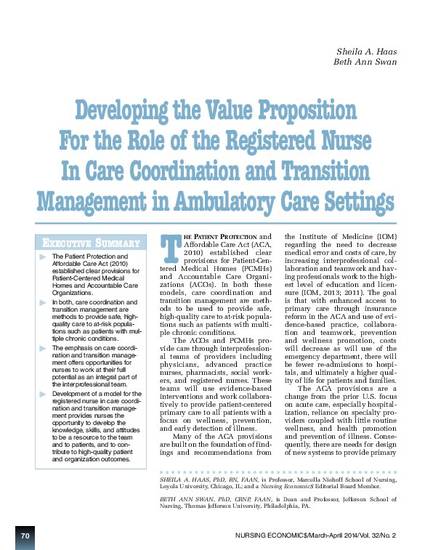
The Patient Protection and Affordable Care Act (2010) established clear provisions for Patient-Centered Medical Homes and Accountable Care Organizations. In both, care coordination and transition management are methods to provide safe, high quality care to at-risk populations such as patients with multiple chronic conditions. The emphasis on care coordination and transition management offers opportunities for nurses to work at their full potential as an integral part of the interprofessional team. Development of a model for the registered nurse in care coordination and transition management provides nurses the opportunity to develop the knowledge, skills, and attitudes to be a resource to the team and to patients, and to contribute to high-quality patient and organization outcomes.
Available at: http://works.bepress.com/sheila_haas/6/
This article is the final published version in Nursing Economic$ Volume 32, Issue 2, March-April 2014, Pages 70-79.
The published version is available here. Copyright © Jannetti Publications